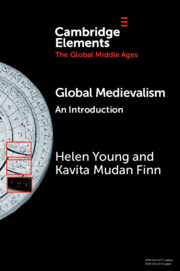‘Anglo-Saxon’ is a term with a long and nuanced history. This study assesses where the word itself comes from, why it has been felt appropriate to separate the pre-Conquest epoch from later English history and why the Anglo-Saxons have taken on so many different meanings in subsequent times. Beginning with the deployment of ‘Anglo-Saxon’ in the eighth to tenth centuries, the focus then turns to how the period before 1066 was constructed as a formative time for English national and institutional identity. This process began in the later Middle Ages, but the term ‘Anglo-Saxon’ itself only began to be used again in the sixteenth century. It later took on powerful political and cultural resonance, which eventually gave rise to a racial understanding of ‘Anglo-Saxon’. The difficult legacy of these many layers of later usage, including developments since the Victorian peak of Anglo-Saxonism, is also assessed.
